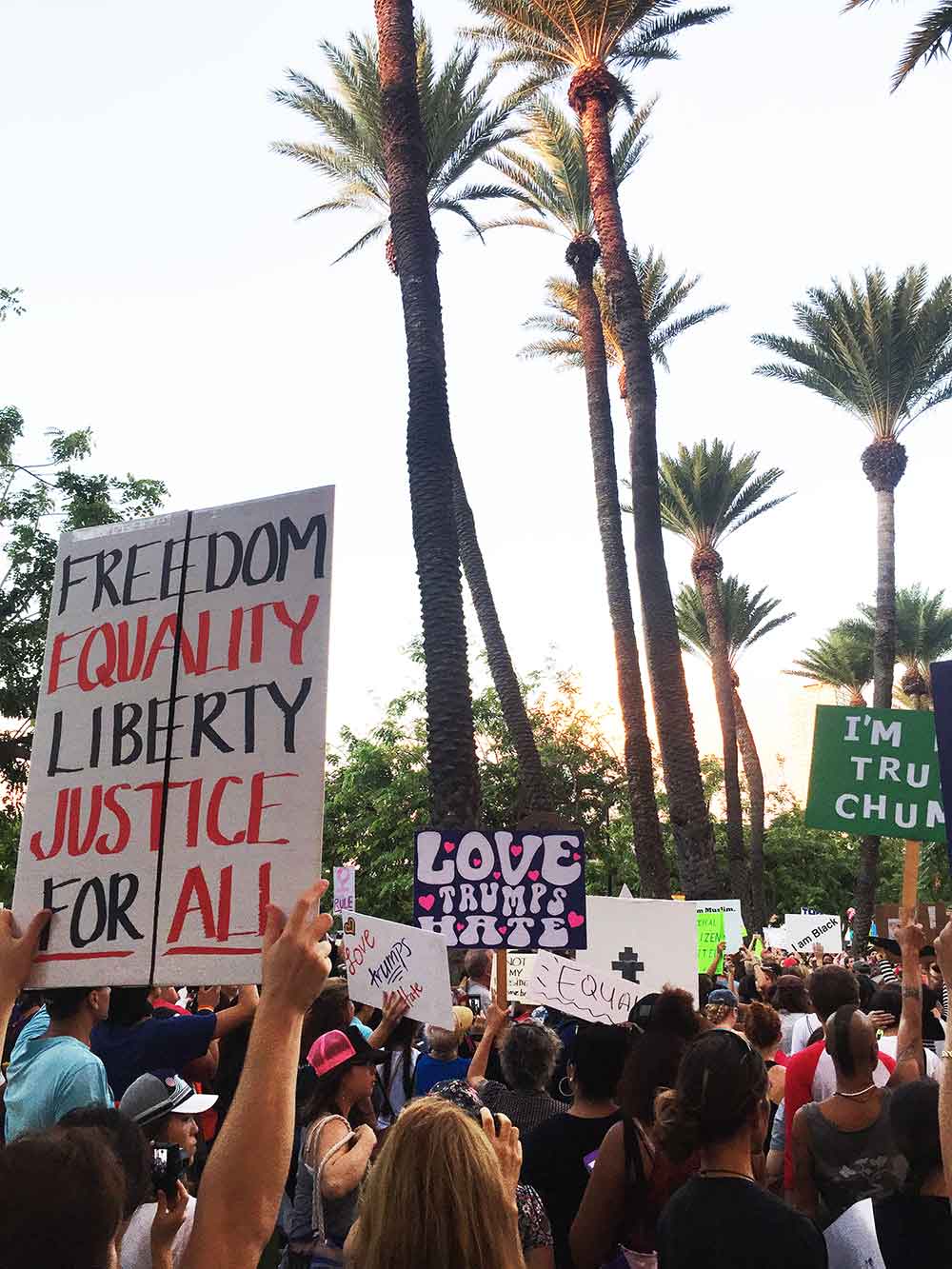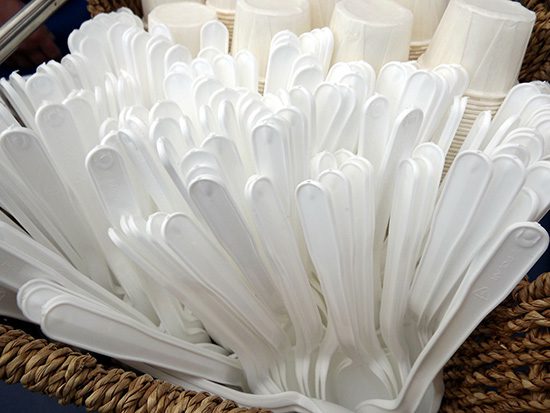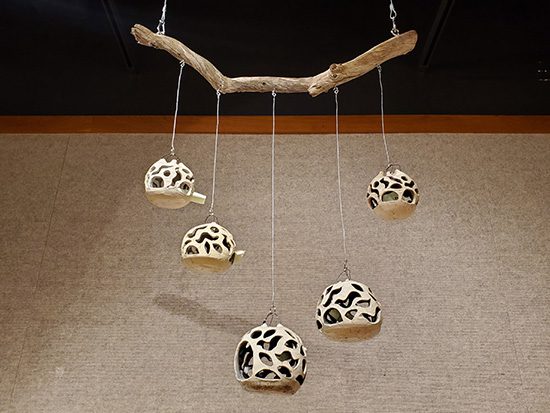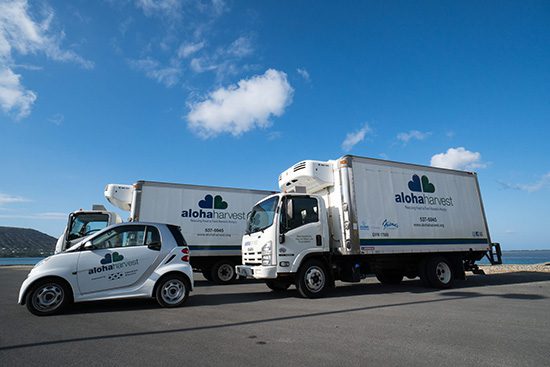
As millions of Americans watched the election unfold on Nov. 8, anti-Trump supporters around the country immediately began to demonstrate their disapproval of President-elect Donald Trump’s victory.
Within 24 hours, protesters took to the streets in at least 25 cities including Portland, Los Angeles, Minneapolis, Austin, New Orleans, Washington and Boston, chanting, “Not my president” and “Love trumps hate.” Within a week, people in 52 cities had turned out to protest Trump’s presidential victory.
The demonstrations led to Trump’s response on Twitter on Nov. 10: “Just had a very open and successful presidential election. Now professional protesters, incited by the media, are protesting. Very unfair!”
The next morning, he tweeted, “Love the fact that the small groups of protesters last night have passion for our great country. We will all come together and be proud!”
Protesters consisted of people from the LGBTQ+ community, children of immigrants, parents with children, students and men and women of all ages and races.
In Portland, OR, several hundred people protested in the streets blocking traffic to downtown and delaying trains on two rail lines. City authorities made multiple arrests after several protesters smashed car windows and threw bottles and other items at police officers conducting crowd management tactics.
In Los Angeles, about 8,000 people marched through downtown on Nov. 12 to condemn what they saw as Trump’s hate speech about Muslims, his call to deport undocumented immigrants and his comments about assaulting women.
Meanwhile, several dozen Trump supporters gathered around his vandalized star on the Hollywood Walk of Fame to urge protesters to give Trump a chance.
At Washington state’s Capitol in Olympia, more than 200 people gathered carrying signs and chanting “No Trump, no KKK, no fascist USA.”
In Chicago, hundreds of people, including families with small children, marched through Millennium Park chanting “No hate. No fear. Immigrants are welcome here.”
Hawai‘i joined the anti-Trump demonstrations on Nov. 13 through a rally organized on Facebook by the Hawai‘i chapter of the Young Progressives Demanding Actions (YPDA), a grassroots organization at the University of Hawai‘i at Mānoa.
Organizers said the goal of the rally was to highlight issues they believe will be threatened under the new administration, such as women’s reproductive rights, climate change protections, immigration and healthcare, among other things.
Protesters met at Kap‘iolani Park and marched to the Trump International Hotel in Waikīkī and were joined by tourists on the way.
Unlike some violent demonstrations on the mainland, there were no reports of violence during the Waikīkī demonstration.
The YPDA had a table at Kap‘iōlani Park with sign-making supplies and pre-made signs. Protesters made signs that read “Stolen election,” “Trump does not speak for me” and “The only minority destroying USA is the 1%.”
“What was so cool about this protest is the fact that it almost wasn’t a protest, but rather a rally,” said Austin Weihmiller, a former WCC student who now attends UH Mānoa. “It remained peaceful and productive throughout the entire rally. We wanted to highlight issues that we deemed important to us–LGBTQ+ issues, sexual assault, the wall and immigrants. And don’t even get me started on global warming.”
UH Mānoa English student Kelly Orr said she was worried about Trump’s stances on education and foreign issues, while UH Mānoa computer science student Wataru Takahashi said he didn’t believe Trump had enough experience for the job.
“We’ve had plenty of presidents we don’t agree with policy-wise,” Weihmiller said. “But with Trump, it’s different. His entire campaign was built on hate, hypocrisy and downright lies. Even now as president-elect, he’s taking different stances on the issues he deemed incredibly pressing. As a gay man who is just beginning his adult career, I’m scared that Trump could undo decades of social justice in a matter of years.”
by Deborah Higa, Ka ‘Ohana Editor in Chief





